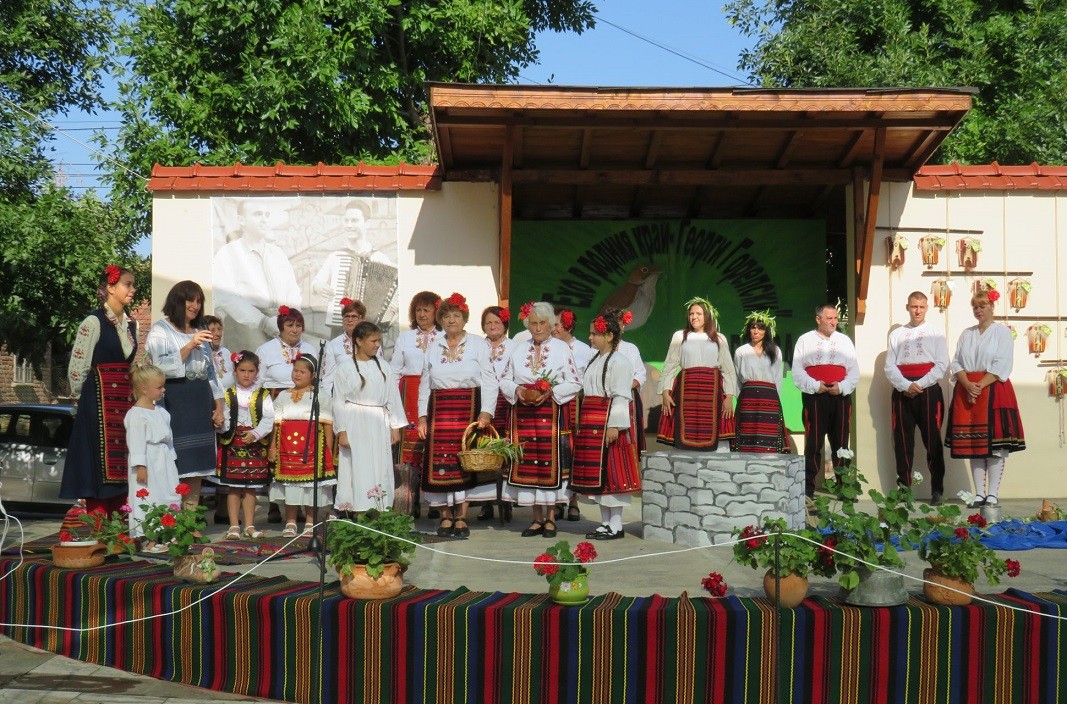May 25 is marked as Spasovden, or Ascension Day. It is a moveable feast, always falling on Thursday 39 days after the first day of Easter. According to Christian belief, on the 40th day Jesus Christ ascended to heaven which marked the end of his earthly life. According to popular belief, the ill must spend the night before Spasovden next to a spring with curative waters, and they shall be healed.

According to a legend from Turnava, one of the oldest villages in Byala Slatina municipality, there is a spring with healing waters around 4 kilometres from the houses. People here called the locality Lekovit Kladenets (healing well), after a legend that a blind ox entered the waters of the spring and got his eyesight back. So, on the night before Spasovden, the villagers would go to that same spot. For many years a festival was organized there in which all people from Turnava took part. People still go to this locality today though the tradition is mostly in the stories told by the older folk.

Turnava is one of the larger villages, with a population of over 2,000, and there are many children at the school and the kindergarten there. The local chitalishte (community culture club) and the local administration organize re-enactments to tell stories of times long gone by. But people still go to Lekovit Kladenets locality, especially in summer. Next to the well there is a water fountain, built in 1937, and a cross.
“The well still exists but it is difficult of access, because there is no road leading up to it, just a dirt track cutting across the fields,” says the village mayor Gabriela Ralovska:
“Traditions here are not very different from what is done on Spasovden in other parts of Bulgaria. Fraxinella blossoms on the night before, a plant also called samodivsko tsvete (nymph flower) in Bulgarian. It is picked “in the dead of night” and is put in a bowl of water. Once upon a time there were grannies who would say magical words; it was believed that by performing these rituals on Spasovden the ill would get well.
We tried to make improvements around the water fountain and the well, but it is a difficult thing. But we do take the children there to show them the place, to tell them the legends. There is one more thing to see there - a centuries-old tree, an oak, and another tree, an offshoot. I am hoping the place will be preserved as a place of legend and tradition by the people of Turnava for the generations to come.”
Translated from the Bulgarian and posted by Milena Daynova
He does not accept the definition of "apostle" or "missionary", although for many he is exactly that - a messenger of God in the world, proclaiming His Word. He first became a priest in his native Vidin diocese, in Northwestern..
Over 80% of Bulgarians are expected to start using artificial intelligence in the next three years , across all age groups. Today, it is almost impossible to find a Bulgarian student who does not turn to ChatGPT when preparing homework. This..
Serbians around the world mark one year after Novi Sad tragedy On November 1, Serbians abroad will join the call of students in Serbia to mark the anniversary of the collapse of the canopy of the Novi Sad railway..
Fertility Europe , the pan-European organization that represents patient associations focused on infertility issues, has announced the start of the 9..
The so-called Seal of Biliteracy was created in 2011 in the US state of California with the idea that in the conditions of a globalized..
Today, in the Radio Bulgaria studio, we welcomed Helmut Matt – a writer, radio journalist and poet, who has maintained a special connection with Bulgaria..

+359 2 9336 661
